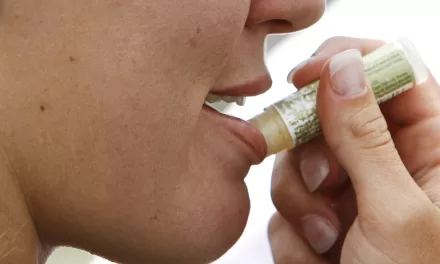“Choose your friends wisely.” This age-old advice, often shared across generations, might now be grounded in more than just wisdom. Recent research spearheaded by Rutgers Health Professor Jessica E. Salvatore unveils a compelling link between the genetic makeup of your friends and your own risk for addiction and psychiatric disorders later in life.
The Genetic Impact of Your Social Circle
Professor Salvatore’s study reveals that the genetic traits of your high school friends can significantly influence your mental health outcomes. According to her findings, “Peers’ genetic predispositions for psychiatric and substance use disorders are associated with an individual’s own risk of developing the same disorders in young adulthood.”
This implies that the genetic tendencies of your social circle could shape your own mental health journey.
Unveiling Socio-Genomics
In an intriguing twist, our genes do not operate in isolation. They interact with a range of factors, including the genetic profiles of those around us. This interplay between an individual’s genes and those of their social network is explored in a new field known as socio-genomics.
To test this theory, Salvatore and her team analyzed extensive data from Sweden, drawing on a database of over 1.5 million individuals born between 1980 and 1998. By examining patterns in location, school attendance, and health records related to substance use and mental health, they identified significant trends.
Friendship and Mental Health
The study aimed to determine whether the genetic predispositions within a peer group could predict the likelihood of developing substance abuse, major depression, and anxiety disorders in adulthood. Using family genetic risk scores, researchers found a notable correlation between the genetic risks of peers and the likelihood of these disorders in individuals.
Despite considering personal genetic factors and socioeconomic status, the impact of peers’ genetic predispositions remained evident. “Peer genetic influences have a very long reach,” Salvatore emphasized, suggesting that intervention strategies should address not just individual risk but also social and network-based aspects.
Future Research Directions
The findings of this study highlight the need for continued exploration in socio-genomics. Further research is crucial to understand how genetic interactions within social networks vary across different populations and cultures. Investigating the influence of various lifestyles and community dynamics on genetic predispositions can offer deeper insights into the mechanisms behind psychiatric disorders.
While this groundbreaking research opens new avenues for understanding mental health, many questions still linger. Salvatore notes that more research is needed to decipher why these genetic connections exist and how best to address long-term risks that persist beyond the school years.
A New Perspective on Friendship and Genetics
As we delve deeper into socio-genomics, it becomes clear that our social circles might play a more significant role in shaping our genetic destinies than previously thought. The study underscores the profound interconnectedness of our lives, suggesting that we are intricately linked not just to our friends but to the broader genetic tapestry of our social networks.
In the words of poet John Donne, “No man is an island, entire of itself; every man is a piece of the continent.” With socio-genomics, it seems we are indeed pieces of our friends’ genetic puzzles, reflecting a complex interplay between genetics and social connections.












